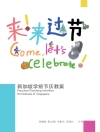Build teacher capacity to promote students′ authentic intellectual work
In spite of numerous reforms to improve rigor and relevance in the classroom, our schools have been slow to change. This work provides
- A research-validated, field-tested framework that can be applied across grades and disciplines
- A powerful professional learning component that emphasizes teacher collaboration
- Detailed examples of lessons, assignments, assessment tasks, and student work
Backed by over 20 years of research, the Authentic Intellectual Work (AIW) framework helps school-based teams improve the quality of instruction, assessment, and curriculum for higher and more equitable student learning.
‘Newmann and colleagues offer a refreshing approach to research and professional development, which deeply honors teachers′ critical inquiry and collaboration. Thanks to their insights, educators finally have a framework for promoting rigor and relevance across all grades and subjects. Those who join this journey will reap the rewards of increased teacher engagement and improved student learning.’
Linda Darling-Hammond, Charles E. Ducommun Professor of Education
Stanford University
‘Authentic Intellectual Work enables educators to overcome challenges to Common Core implementation. Newmann, Carmichael, and King explain how the AIW approach builds the culture of collaboration and trust required for successful school reform. Importantly, they show how collective professional development among teachers and school leaders can enhance educators’ learning and practice, leading to more equitable student outcomes.’
Greg Anrig, Senior Fellow
The Century Foundation
İçerik tablosu
Introduction
Part I: The AIW Framework
1. Authentic Intellectual Work: Criteria, Examples, Rationale
Part II: Teaching to Promote Authentic Intellectual Work: Criteria, Standards, and Rubrics
2. Construction of Knowledge
3. Disciplined Inquiry
4. Value Beyond School
Part III: Implementation that Builds Capacity
5. AIW Research
6. Internal Support: Building Capacity for Improved Teaching within Schools
7. External Support: Building Capacity for Improved Teaching within Schools
Appendix
References
Yazar hakkında
Dr. M. Bruce Kingis a Faculty Associate with the Department of Educational Leadership and Policy Analysis (ELPA) at the University of Wisconsin-Madison. His work in ELPA concentrates on teaching courses on instructional leadership and teacher capacity, coordinating the Wisconsin Idea Ph D cohort program in K–12 leadership, and building effective partnerships between the department and schools and districts.Bruce has been a researcher with the Wisconsin Center for Education Research, where he contributed to two studies focused on Authentic Intellectual Work, the Research Institute on Secondary Education Reform for Youth with Disabilities and the Center for Organization and Restructuring of Schools. He received his Ph D in curriculum and instruction from UW-Madison and taught upper elementary, middle, and high school for 11 years in Wisconsin, Minnesota, and Quito, Ecuador.Bruce has been a research fellow at the University of Newcastle, New South Wales, and has consulted on two research projects in Australian schools that extended the body of research on AIW. He serves as associate editor for the international journal Teaching and Teacher Education, and has published in national and international research and practitioner journals. Currently, he provides professional development as an AIW coach in Wisconsin and Georgia.Along with colleagues Fred Newmann and Dana Carmichael, Bruce recently published a companion book to this volume, Authentic Intellectual Work: Improving Teaching for Rigorous Learning (Corwin, 2015).











